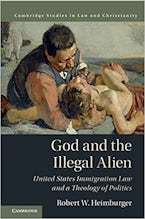
Religion and the Exercise of Public Authority
Edited by: Benjamin L Berger and Richard Moon
224 Pages
- Hardcover
- ISBN: 9781849467155
- Published By: Hart Publishing
- Published: August 2016
$78.00
Studies of the nexus of religion and politics usually focus on faith’s influence on the attitudes and behavior of citizens and politicians, and on its impact on high-level government affairs, such as constitutions, elections, and the legislative process. These studies rarely look at frontline personnel charged with applying the laws and delivering the policies produced by political elites to ordinary citizens. Using a refreshingly original perspective, the essays collected by Benjamin Berger and Richard Moon in Religion and the Exercise of Public Authority take a close look at the interplay between religion and political authority at this mid level of analysis. The book’s context is the Canadian public sphere defined in an all-encompassing manner that covers public services, courts, health, and schooling. As host to a diverse society, the volume argues, the Canadian state offers a good example of the inevitable engagement between a liberal government apparatus and various religious traditions.
The work should be of interest to scholars in the fields of law, politics, and religion, but also to civil servants and other professions with a role in public life, such as lawyers, judges, doctors, and teachers. Chapter contributors are specialists in the field of religion and law. The collected essays are case studies of the role religion plays in the individual experiences, beliefs, and practices of functionaries performing public roles, in an attempt to emphasize the complexities surrounding bigger questions: religious freedom, state neutrality, toleration, and secularism. Existing works tend to treat such questions at the conceptual or formal levels, forgetting that in practice, the application of arrangements that promise, among other things, religious neutrality relies on the state’s administrative personnel.
The book argues that the normative position of state neutrality and non-discrimination toward religion(s) is often challenged by the experiences of real individuals—religious officials or officials dealing with religious citizens—involved in the exercise of public authority. Apart from this unifying theme, individual chapters move in various different directions. These include legal arguments against efforts to enforce state neutrality toward religion in personnel terms, discussions of the religious undercurrent of government claims on the country’s natural resources, empirical examinations of the contested nature of the public-private dichotomy in public sector workplaces and schools, legal battles surrounding the holding of prayers during public meetings, and policy proposals that strike a balance between citizens’ rights in accessing services and providers’ rights to conscientious objection.
Specific conclusions that emerge stress the soft and unstable dividing line that separates individual religiosity and the exercise of political authority when it comes to the experiences of public officials. This book gives an idea of the difficulty of imposing this distinction in cases of individual public officials who are also deeply religious; the term used for this lack of neat separation is “within the subject” (9). Emphasis is placed on challenges to the formal assumption of state neutrality toward religion that arise from the unequal treatment of majority and minority faiths in the workplace. Historical discussions of state building processes also suggest that religious motivations have always served as the basis of the lived experience of secular authority and state formation in the country.
Pluralism of topics and methodological approaches is also a weak point of the volume, creating an unbalanced effect. Some chapters provide concrete evidence of the interactions between faith and political authority as exercised by public professionals, analyzing data from interviews and other transcripts. Other chapters offer philosophical and legal arguments on the impossibility of state neutrality. Regarding the book’s approach to religiosity, a clearer and consistent distinction between the separate dimensions of religiosity as these are usually examined in the social sciences—belief, practice, and identity—could have served to better link this volume with existing studies of religion and politics. Finally, an underexplored thread that implicitly cuts across many of the chapters is the contestation around the boundaries that separate the sacred and the secular in terms of physical space. Public officials and professionals operate in offices, courts, physician examination units, classrooms, and marriage venues. This centrality of space, which contextualizes the experiences and reactions of individuals that execute public duties, remains downplayed as a connecting theme of the various chapters.
Limitations notwithstanding, this is a rich and original study of the role of religion in the public sphere.
Stratos Patrikios is senior lecturer in government and public policy at the University of Strathclyde, Glasgow.
Stratos PatrikiosDate Of Review:February 20, 2017
Benjamin L Berger is an associate professor at Osgoode Hall Law School, York University.
Richard Moon is a professor at the faculty of law, University of Windsor.











